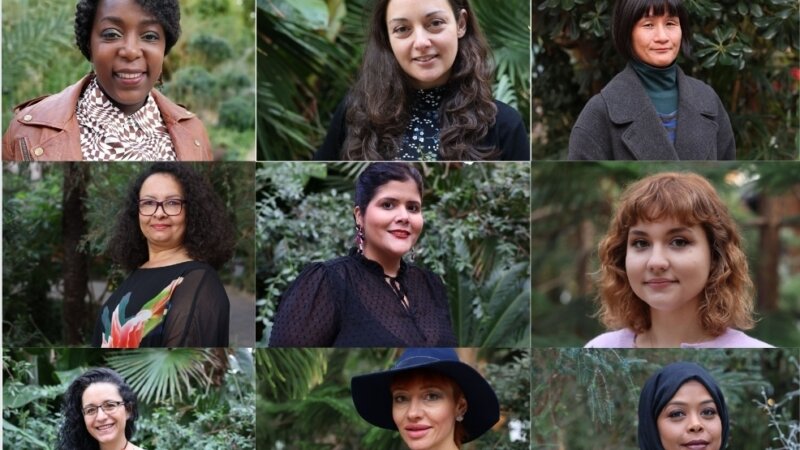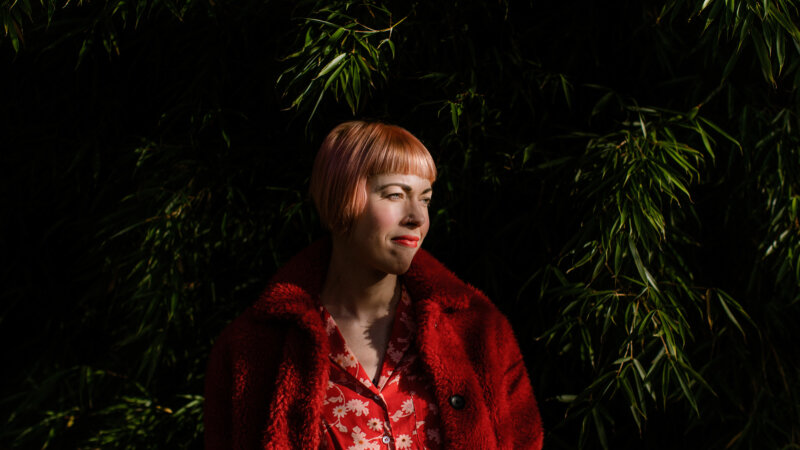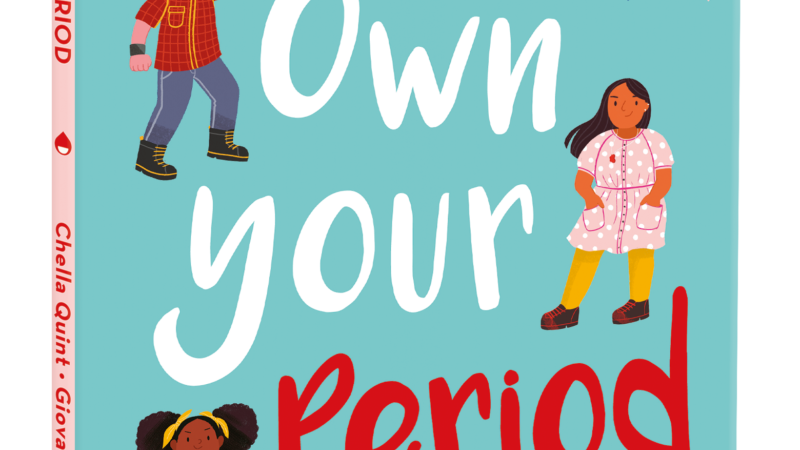Lyric Festival / Northern Writers’ Awards.
Lavinia Greenlaw.
What started you writing and who were the first writers who really grabbed your attention?
I think the most important poets to me were the poets I discovered for myself, rather than the ones I discovered at school, so it was the Americans and Europeans – [George] Herbert, Robert Lowell, Elizabeth Bishop. In those times, America felt very far away indeed. I felt like I was reading a different language written by different people in a different world. I always wrote as a child, and then when I was a teenager I wrote these deep, angsty, melodramatic poems, which have all gone into a deep, dark hole. I began to understand that the poem has very little to do with the poet in the end, that I thought there was more to do with writing than simply ‘spillage’.
Helen Mort.
When writing about a subject, do you try and harness your personal connection to it or look for a level of distance?
I think you need both definitely. You can’t write about something if you’re too close to it. I’ve always been a believer that to get close to the poetic truth of soemething you might have to lie, or it’s neccesary to diverge from the real world truth. I think it’s more interesting to say you can be true to an experience by telling it from a slant. You need to know why you’re writing about something, why it matters. I think it was Ted Hughes who said you need to work out the things in your life you’d die to be parted from – not just the things you read in the papers that are a passing curiosity, but what’s a deep part of your life. That investment in the poem is really important.
The best example for me is a poem about the miners’ strike. It took me a while to work out why I needed to write that poem, rather than other people who might be more qualified. It took a while to realise I wasn’t just writing about Orgreave but other places I’d been, especially living in Cambridge – that juxtaposition of two different worlds and that idea or feeling like you were a traitor from where you originally came from. So that’s personal but I also needed some abstraction too, and looked at it through the lens of a film called The Battle of Orgreave.
Simon Armitage.
What are you working on at the moment?
In 2014 I’m publishing a new Selected Poems. The old collection is about 10-12 years old now. I thought it was time to reassess what had gone on and regroup before the next phase.
The book after that will be called The Unaccompanied. As the title suggests it’s about going solo, solitude, distance, existing outside of a mainstream. They look like my early poems. There’s a lot of quatrains. From about five yards away they look like a hymn sheet. I sometimes wonder if that was an early model for my work. There’s poems about my parents, poems about this part of the world, but that’s been a constant really. But the whole book is still taking shape, so it’s hard to say too much at the moment.
Jacob Polley.
Are you interested in working with poetry in collaboration with other artforms?
It’s really interesting when you come in conjunction with another art form. I’ve been working with a composer. Music and words, and writing something for a voice to be sung, is very different. When a singer says, “I don’t understand what this means”, you realise you have to do somehting to the words to make the audience understand it. It makes me take a step back and think about how much clarity is in the piece. When you’re writing you want to add as much clarity as possible, and so working with a musician and singers has been really interesting.
Paul Farley.
Do you have any advice for new writers?
When I get asked this, I try and wonder what I would have said to myself when I was starting out. I mean, it’s important to read a lot, and widely, but it’s important to fall in love with poetry, or poets, or a kind of poem. That is quite vague, but I think it needs to be. You need that connection, that love affair, and if that doesn’t happen then it can feel like you’re wading through treacle when you’re trying to write. It can feel too much like hard work and you’re only going to fall in love by reading a lot, and also by reading out of your comfort zone.
Established in 2000 by New Writing North, the Northern Writers’ Awards support both new and established writers to develop their work towards publication and to progress their careers as writers. For new writers, winning a Northern Writers’ Award can help connect them to the publishing industry and develop their work towards publication. For established writers, it can support the development of new work and offer creative opportunities.
The deadline to apply is 17th January 2014. Awards on offer are:
Awards of between £500 and £5,000 that support writers to develop books and collections of work. Open to applications from both emerging and established writers.
The Andrea Badenoch Fiction Award
This award is for first-time female writers over the age of 42, the age at which Andrea published her first novel.
The Waterhouse Poetry Award
This award is for a new or emerging poet whose work reflects a strong sense of place or the natural environment.
New Fiction Bursaries
Offering five new novelists the chance to receive an in-depth editorial report on their novel or work in progress worth up to £300 each. These bursaries are aimed at supporting new prose writers whose work shows potential but who need editorial support. In conjunction with The Literary Consultancy.
The Arvon Award
Offering a prose writer the chance to undertake an Arvon creative writing course. This award is aimed at supporting new and emerging writers.
The Cuckoo Young Writers Award
This new award, worth £500, is for a young writer aged 14-18 who is writing poetry, prose or creative non-fiction. Funded by a group of private donors.
The Matthew Hale Award
Special award is for talented young people aged 12-18 years old who want to develop their interest in writing and literature, whatever the form – fiction, poetry, blogging, drama, songwriting – but who lack the opportunity to do so. The award, worth £500, cannot be applied for directly as it is by nomination.
Annabel Lee.
By Julian Peters.
 )
)





